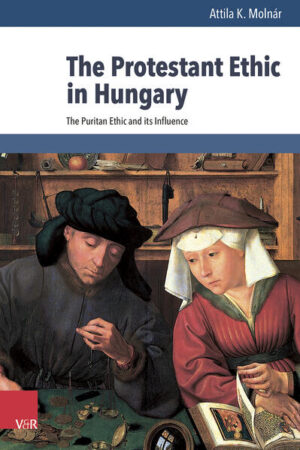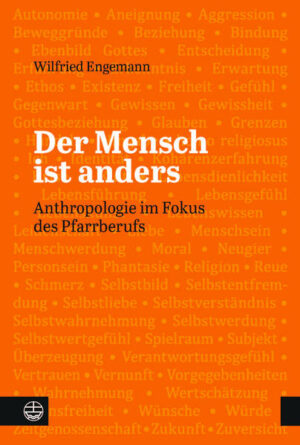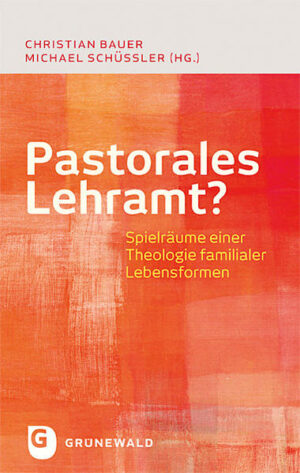- Softcover : 370 Seiten
- Verlag: Verlag Franz Schmitt
- Autor(en): Lazar T. Stanislaus
- Auflage: 1. Auflage, erschienen am 11.05.2018
- Sprache: Englisch
- ISBN-10: 3-87710-550-5
- ISBN-13: 978-3-87710-550-4
- Vom BAfmW empfohlenes Alter: Jahren
- Größe: 23,0 x 16,5 cm
- Gewicht: Gramm
Missionary Discipleship in Glocal Contexts
27,90 €
inkl. 7 % MwSt. zzgl. Versandkosten

BONN (BAfmW) – INTRODUCTION What exactly is missionary discipleship? And more importantly, what does it have to do with you and me? If these questions have been on your mind lately, then you will not be disappointed with this collected volume of essays. In all the gospels, Jesus called women and men “to come after” him to be his disciples (e.g. Mk 1:17; Lk 8:2-3) and furthermore “to go and make disciples of all nations” (e.g. Mt 28:19). Similarly, the risen Jesus in John’s Gospel issues this important command: “As the Father sent me, so I send you” (Jn 20:21). Disciples seek to imitate everything that Jesus does, so that his life becomes our life, his mission our mission. In short, a Christian is both a disciple (one who follows Jesus) and a missionary (one who is sent out into the world), and all baptized believers are called to be, as Pope Francis says, “missionary disciples.” In Evangelii Gaudium (EG), Francis highlights this phrase when he writes that “The Church is herself a missionary disciple; she needs to grow in her interpretation of the revealed word and in her understanding of truth” (EG 40). Pope Francis stresses that every baptized member of the church is called to deepen one’s communion with Jesus Christ in order to effectively evangelize or to be a missionary. This of course is not new. The Second Vatican Council in Ad Gentes (AG) already stated that “the Church is missionary by its very nature” (AG 2). In other words, by virtue of their baptism, all the baptized are agents of evangelization (EG 120). However, a missionary disciple must do more than just simply evangelize. Rather, he or she must radiate and demonstrate the joy of his or her faith—a sign of an authentic disciple of Jesus. He or she be-comes an agent of transforming the world, actualizing the kingdom of God together with others. Although the message of the gospel remains the same, for “Jesus Christ is the same yesterday and today and forever” (Heb 13:8), the challenges of mission differ in every age. The need to familiarize our-selves with contexts both local and global is paramount in all missionary endeavors. Responding to the signs of the times and the issues of the church and world, missionaries of the Society of the Divine Word (SVD), Sisters Servants of the Holy Spirit (SSpS) and lay partners offer critical reflections in this volume that take into account current devel-opments at both the “global” and “local” levels, henceforth called glocal contexts, through the model of missionary discipleship. This writing project takes seriously the changing glocal contexts, the contemporary challenges and the importance of being disciples as well as forming disciples—all facets of one basic reality. The glocal is expressed in the catchphrase, “Think globally, act local-ly!” Through the enmeshment of the local and global, the impact of dis-tant events is magnified, while even the most local developments may come to have significant global consequences. Globalization, for example, has brought a lot of good and tremendous changes in the world, especially through the development of cyberspace and electronic media; growth and interactions that had been hitherto unthinkable are happening today. Our globalized world has become like a village, reaching any place, any person and any information seems to be rather easy. Instant communication is becoming a way of life. The world has changed faster than anyone could have imagined even a decade or two ago. Local cultures and people, however, also play a vital role in the global world. The local is also significant in the process of globalization: for instance, the way a decision in the oil-rich Middle East can affect transport and consequently food prices in many nations throughout the world. The economic regionalization of the European Union has influenced trade and production on a global level, or consider the worldwide spread of Chinese food, country and western music, and pizza. All illustrate the worldwide reach of elements of local cultures. The point of glocal is that local processes have global consequences. The intensity of global flows and interconnections relative to local networks remains variable. Consequently, the glocal approach to mission offers a mission response to globalization and other related concerns. In the context of the church and its mission, analyzing the glocal contexts and missio Dei has become imperative. Contextual mission is taking us to glocal con-textual mission, inculturation is leading us towards interculturation, the mono-cultural or multi-cultural parish is moved toward becoming an intercultural parish. Accordingly, every aspect of mission, ministry and missionary is viewed and analyzed within the glocal contexts. This book is divided into three major parts. Part one consists of five chapters, surveying the following glocal contexts: globalization, digitalization, migration, religion, and ecology. Part two examines the meaning of being disciples and missionaries in the glocal sphere. This section comprises chapters that focus on diverse perspectives: biblical, theologi-cal and missiological, intercultural, spiritual, formational and philosophical. Finally, part three offers concrete illustrations from the lived experience of discipleship in action. Many experiences, success stories and challenges overcome by being disciples today are narrated. Their stories are based on the missionaries’ experience in the glocal contexts and how they have lived or continue to do ministry as missionary disciples. This is a portrayal of their witness and commitment. Some of them are personal testimonies and personal convictions of being missionary disciples. They also express that this is a process of growth that needs courage and also support from others. We may call them “paradigms of living discipleship today.” While the contributors to this project are mainly SVDs, there are several SSpS and lay partners who have contributed to this timely endeavor. These voices and perspectives as disciples and missionaries offer a unique angle for scholars and anyone who seeks to become a missionary disciple of Jesus in the global church. Furthermore, this book project offers a unique contribution because its starting point focuses on real life discipleship and missionary experiences that engage in local as well as global contexts that very few practitioners have attempted to share. This project was conceived by fifteen SVDs and one SSpS who gathered at St. Joseph Freinademetz Formation House in Seoul, South Korea, on August 10-11, 2016. This meeting took place just before the 2016 conference of the International Association of Mission Studies (IAMS) that happened to take place in South Korea that year. The SVD Korea Region (KOR), under the leadership of Fr. Benedict Kim, SVD, provided us with the opportunity to meet, share and envision this writing project. We are deeply grateful to the KOR Region for their excellent hospitality and generosity. We also would like to acknowledge two institutions that have financed this project: the Divine Word Missionaries Mission Center at Techny (USA) and the Steyler Mission Office at Sankt Augustin (Germany). We are very grateful for their financial assistance. We would like to thank the publisher Steyler Missionswissenschaftliches Institut at Sankt Augustin and its director, Christian Tauchner, SVD, who has worked diligently with his team to bring forth this volume. We also wish to recognize Stanley Uroda, SVD, and Mark Weber, SVD, who have meticulously read through all the manuscripts and carefully proof-read them. We are grateful to the SVD Superior General, Fr. Heinz Ku-lüke, SVD, and his council for their support and encouragement. Lazar T. Stanislaus, SVD vănThanh Nguyễn, SVD
Über „Missionary Discipleship in Glocal Contexts“
Das Bundesamt für magische Wesen weist den gemeinen Bürger und die gemeine Bürgerin draußen im Lande darauf hin, dass „Missionary Discipleship in Glocal Contexts“ von Lazar T. Stanislaus für Leser und Leserinnen Jahren deutliche Spuren von Religion und Aberglauben enthält. Es unterliegt den Regeln der FMSK zum Schutz der (nicht-)magischen Jugend und Allgemeinheit vor geweihten Röckchenträgern.
Es erschien am 11.05.2018 im/bei Verlag Franz Schmitt.

Das Bundesamt für magische Wesen kommt mit dem Hinweis auf „Missionary Discipleship in Glocal Contexts“ seinem Bildungsauftrag nach, die Eltern junger Vampire, Dämonen, Elfen sowie weiterer Pubertiere auf die Gefahren hinzuweisen, die von Religion, religiösen Institutionen und dem organisierten religiösen Verbrechen ausgeht.
Religion und Drogen gefährden gleichermaßen die geistige, seelische und körperliche Unversehrtheit von Kindern und Jugendlichen. Das Amt weist bei dieser Gelegenheit betroffene Familienangehörige auch auf Therapie- und Aussteigerprogramme für sog. „Religiöse“ hin, die dafür bekannt sind, das Leben harmloser schwuler Vampire und gut integrierter Werwölfe zur Hölle zu machen.
Lesen Sie Bücher von Lazar T. Stanislaus nur zusammen mit Ihren Kindern!

Brutale religiöse Geschichten über Hexenverbrennung, Jünglinge in Feueröfen, Kreuzigungen im Namen von Vätern, die sich nicht um ihre Söhne kümmern, Kreuzzüge sowie andere kirchliche Horrorgeschichten können bei Kindern und Jugendlichen schwere Alpträume, Ängste und Depressionen verursachen. Lassen Sie Ihren Nachwuchs lieber sein Modelpotential bei einem Fantasyshooting als Werwolf, Vampir oder Dämon testen.
Ebenso traumatisierende Begegnungen mit religiösen Gefährdern wie Joachim Kardinal Meisner und den geweihten Röckchenträgern des organisierten religiösen Verbrechens aus dem Katholischen Staat und dem Evangelikalen Emirat.

Sie sind stets willkommen im Bundesamt für magische Wesen in Bonn, der Stauhauptstadt von Nordrhein-Westfalen. Dort gibt es viele gute Fantasyromane und andere spannende Romane zum Träumen. Außerdem bekommen Sie dort erste Hilfe bei einer Infektion mit den Legionellen Christi und Beratung! Religion ist heutzutage wirklich heilbar! Niemand muss heutzutage mehr an Religion erkranken.
| Größe | 23 × 16,5 cm |
|---|
Marke
Verlag Franz Schmitt
Das könnte dir auch gefallen …
-

Loverboys 146: Doktorspiele in Sankt Blasius
12,99 €inkl. 7 % MwSt.
zzgl. Versandkosten
In den Warenkorb -

Queer-Affirming Pastoral Care
28,00 €inkl. 7 % MwSt.
zzgl. Versandkosten
In den Warenkorb -

The Protestant Ethic in Hungary: The Puritan Ethic and its Influence
130,00 €inkl. 7 % MwSt.
zzgl. Versandkosten
In den Warenkorb -

Loverboys Classic 17: Unkeusche Klosterschüler
7,99 €inkl. 7 % MwSt.
zzgl. Versandkosten
In den Warenkorb -

Loverboys Classic 14: Der Neue im Kloster
12,95 €inkl. 7 % MwSt.
zzgl. Versandkosten
In den Warenkorb -

Der Mensch ist anders: Anthropologie im Fokus des Pfarrberufs
45,00 €inkl. 7 % MwSt.
zzgl. Versandkosten
In den Warenkorb









Bewertungen
Es gibt noch keine Rezensionen